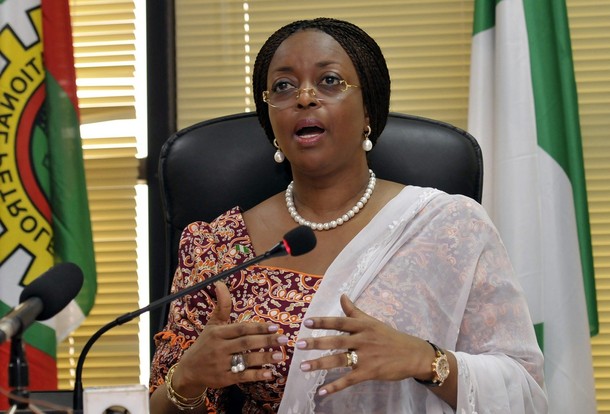- UK’s National Crime Agency Freezes Alison-Madueke’s London Properties
The UK’s National Crime Agency (NCA) has frozen London properties valued at £10 million allegedly bought for the former Minister of Petroleum Resources Mrs. Diezani Alison-Madueke, as investigations into the case against her unravel by the day.
The two properties located at Regents Park in London, along with one in Buckinghamshire, have now been frozen based on the request of Nigerian authorities.
According to online news medium, Premium Times, a London court gave the freeze order in September 2016 but details of the rulings have only recently become public.
But the agency was too late in preventing a further two properties worth £8 million from being sold.
In July, the U.S. Department of Justice (DoJ) had revealed four properties it alleged were bought for the former petroleum minister by individuals and firms seeking her influence in obtaining lucrative oil assets and crude oil lifting contracts.
Some of the oil assets were assigned to people believed to be her cronies through Strategic Alliance Agreements (SAAs).
The DoJ’s affidavit stated that businessmen, Jide Omokore and Kola Aluko were involved in the purchase of two of the properties allegedly bought for Alison-Madueke.
The UK order obtained by Africa Confidential, a newsletter specialising in politics and business in Africa, has revealed that three of the properties have been frozen under the Proceeds of Crime Act.
Apart from Alison-Madueke, Omokore and Aluko, the order also named three other individuals as defendants in the case, all of whom were believed to have received contracts or oil assets from the NNPC during the embattled minister’s tenure.
The order forbids the defendants from disposing of or dealing in the properties.
Although the NCA has frozen three properties valued at £10 million, the agency was too late to prevent a further two properties worth £8 million from being sold.
One of these, a massive nine-bedroom house in London’s exclusive Hampstead Garden Suburb, bought by a British Virgin Islands-registered company in January 2011 for £5,850,000, was sold in May 2015.
Similarly, the property at 39 Chester Close, one of the properties listed in the DoJ case, which was bought by Aluko’s BVI-based Mortlake Investments for £1.73 million, was sold in July 2015, months before the NCA initially arrested the former minister.
UK estate agent, Daniel Ford & Co, assisted in the purchases of three of the properties, and UK solicitors firms, Addie & Co and Gordon’s Partnership, were conveyancers of the deals.
According to Corruption Watch, a UK NGO, investigators should look carefully at these organisations’ due diligence practices.
The order signals a step up in the UK’s investigation of the former minister, who was first arrested by the NCA in October 2015 when the agency confiscated her passport and £27,000 in cash found in her apartment.
However, the extent of the evidence against Alison-Madueke and the other defendants remains unclear.
The September 2016 forfeiture proceeding of the properties was held in private, meaning that the evidence that the NCA presented to support the seizure was not accessible.
Although some of the businessmen all had lucrative contracts with the NNPC, and are all accused of lavish spending for Alison-Madueke, this alone might not be enough to secure criminal prosecutions against any of them, analysts have said.
“In the U.S. and UK, simply buying luxury items for a government official like Ms. Alison-Madueke isn’t against the law,” said Aaron Sayne, a financial investigator and Senior Governance Officer at the National Resource Governance Institute.
“Investigators have to link the money involved to a crime that happened in Nigeria. And if the crime is bribery, they must also show that the items purchased rewarded her for helping someone win a government contract. That’s not easy to prove, especially well enough to stand up in court,” he pointed out.
The DoJ’s case included transcripts of conversations in which the minister appeared to admit her role in awarding the SAA contracts to Atlantic Energy – but it is still unclear whether the UK has additional evidence relating to the contracts that others received during Alison-Madueke’s tenure.


 Forex3 weeks ago
Forex3 weeks ago


 Naira2 weeks ago
Naira2 weeks ago
 Billionaire Watch2 weeks ago
Billionaire Watch2 weeks ago




 Naira3 weeks ago
Naira3 weeks ago




 Naira2 weeks ago
Naira2 weeks ago




 Naira1 week ago
Naira1 week ago




 Naira4 weeks ago
Naira4 weeks ago




 Naira4 weeks ago
Naira4 weeks ago

















